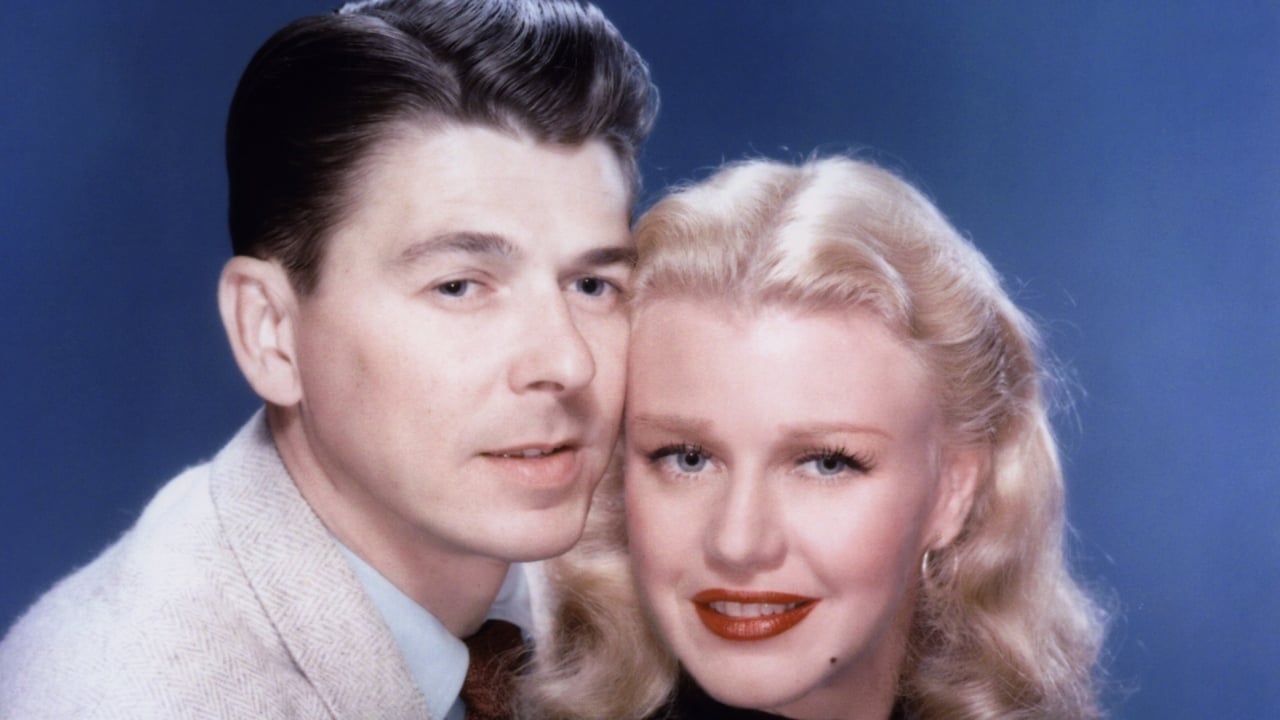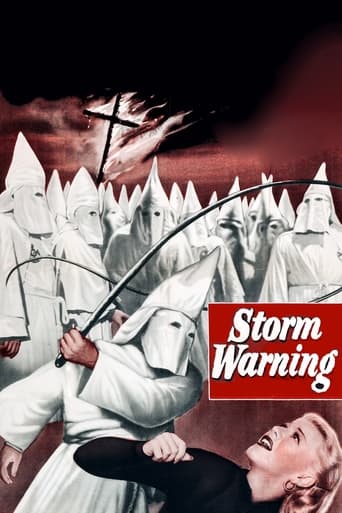

Best movie of this year hands down!
... View MoreIt is not only a funny movie, but it allows a great amount of joy for anyone who watches it.
... View MoreLet me be very fair here, this is not the best movie in my opinion. But, this movie is fun, it has purpose and is very enjoyable to watch.
... View Morewhat a terribly boring film. I'm sorry but this is absolutely not deserving of best picture and will be forgotten quickly. Entertaining and engaging cinema? No. Nothing performances with flat faces and mistaking silence for subtlety.
... View MoreThis has to be the only anti-Klan/social message film you'll ever see that doesn't mention race even once. African-Americans appear only as extras in this story; I'm pretty sure no one even gets a line of dialogue. As if that wasn't distracting enough, there's a tacked-on theme that the Klan is simply a money scam, with the various local wizards getting rich off of dues, emblem and white sheet and pillow case sales and what-not, and that the whole terrifying organization is one forensic audit away from some really bad press. On top of all that weirdness, it's made very clear- and don't think this wasn't thought through, hashed out, and thoroughly negotiated- that the Klan murder that opens the film was the unintended act of a loose cannon, rather than a real lynching. Past all that hedging, though, they really give that bad ol' Klan what-for! The result is an almost unimaginably odd duck- an openly crusading film that must have made the Klan and the NAACP pretty equally unhappy back in 1951.What we're left with is a pretty good Noir that is brisk, tense, gripping, and very exciting when it needs to be, driven by the kind of villains you love to root against- bullies and cowards. Ginger Rogers and Doris Day are cast well out of their comfort zones in humorless, non-glamorous (though Rogers plays a model), and mostly unlovable roles. Both pull it off admirably. Reagan is right in his wheelhouse as the straight-arrow prosecutor fighting an uphill battle. Odd to find these three future Republican stalwarts in this de-fanged cop-out, but they manage to make something out of the leftover pieces that's well worth your very short viewing time. "Storm Warning" is also nicely staged and spooky; it delivers a small town from the 1950s that you won't want to visit- but boy, is it vivid and real.It would be interesting to know what went on behind the scenes- who chickened this thing out, and what the early drafts looked like. They clearly had no heart to make an "Ox-Bow Incident" or "Gentleman's Agreement", but they gave what they could.
... View MoreDirected by Stuart Heisler, and written by Richard Brooks and Danial Fuchs, elements of this solid drama might remind some of the more famous Elia Kazan-Tennessee Williams drama released six months later that same year, A Streetcar Named Desire (1951). Though this one's main emphasis is the Ku Klux Klan, aka the KKK, both feature a sister that comes to visit another who's married to a Southern male brute, causing conflict (and more, without spoiling either film).Ginger Rogers (somewhat miscast) plays Marsha Mitchell, a New York dress model who arrives on the 10 PM bus in Rock Point to stopover and visit her sister on the way to Riverport. Shortly thereafter, she witnesses a murder: some white robed, white hooded persons drag another man out of the town's jail. Their prisoner escapes and runs for his life from the gang but is shot before rounding the corner of a building, falling right in front of Martha, who then hides in a darkened doorway. She then sees two men, their hoods off, come to inspect the body and verify that the man is dead. The gang disperses and Martha runs 10 blocks to the recreation center where her sister, Lucy Rice (Doris Day, her first non-singing role), works.A shaken Martha learns that Lucy is pregnant, and later meets her truck driver husband Hank (Steve Cochran), who was one of the men Martha had seen earlier. She learns later that the other's name is Charlie Barr (Hugh Sanders), Hank's boss and Grand Dragon of the local KKK.Ronald Reagan plays Burt Rainey, a lifetime Rock Point resident and its prosecutor, who decides he finally has the witness he needs in Martha, an outsider presumably not afraid of retribution, to indict the Klan and end their activities in his town.However, Charlie is smart enough to know that his organization isn't safe until Martha leaves town, and that Hank is too dumb to handle it, so he threatens her himself. If only for her sister, Martha agrees to dummy up when questioned again by Burt at the coroner's (Walter Baldwin) inquest. Though he (and the visiting press) is letdown, the rest of the town celebrates into the night.Hank, who'd actually been the triggerman, is the most rowdy of all. When Martha, whose bus doesn't leave until later that evening, comes to the recreation center to get Lucy's house key in order to pack her things, she has a confrontation with Burt who later, his small brain additionally inhibited by alcohol, makes inappropriate advances towards her.Lucy arrives in time to interrupt his attempted rape of her sister, realizes what she's married and promises Martha to leave him, before she's knocked down and out by her husband in a struggle. His Klan buddies arrive to take him to that night's meeting and Hank decides to drag Martha to the affair, where she's whipped in front of a huge group of members that includes women and children!Even though the Charlie Barr character defends it as a necessary service (without them, women like Martha wouldn't be safe to walk the streets at night), much of the film's dialogue delivers the requisite indictment of the KKK and its members, too scared to act without the courage of numbers or show their faces (hence the hoods).But there's a twist - Barr's real motivation is financial: there's real money for him in the dues etc. such that he's portrayed like a corrupt union boss, or worse (a capitalist;-)In the end, while Burt has come to save the day and Martha, Barr's true self centered (vs. all for one) nature is revealed to all, and an enraged and disillusioned Hank ends up killing another, this time (accidentally) Lucy, before the rest of the group wises up and runs for cover as the Grand Dragon pleads for them to stick together.
... View MoreEven when I first saw STORM WARNING as a teenager on a late night television broadcast long, long ago, I realized that Ginger Rogers, Doris Day and Ronald Reagan were very odd casting for a film about the Ku Klux Klan. Still, the movie worked for me then and it works for me now. As many have noted, this is no documentary on the Ku Klux Klan. It treats the Klan more as your typical crime syndicate, a subject that was coming into prominence at around this time (see THE PHENIX CITY STORY among many others). Take STORM WARNING for what it is rather than for something that it is not and you'll find plenty to admire about it.Ginger Rogers plays a dress model, presumably modeling for some small garment district company, who's hitting the small town Southern circuit (we must deduce 'South' from the bus's itinerary on which Rogers is traveling. Otherwise the town could plausibly be anywhere in the Midwest, or even much of the West, though 1930 would be a more likely date for Klan domination of a city than was 1950). It's a modest position, and with a still marvelous body together with her rather worn face, Ginger very much looks the part. The first scene shows her kidding around a lot with her traveling companion. Such levity completely disappears once she witnesses the killing. It's a nice touch.Ginger also looks very plausibly the older sister of Doris Day. The psycho-dynamic similarities with A STREETCAR NAMED DESIRE are too striking to be missed. This must have been the influence of the stage production of STREETCAR as STORM WARNING seems to have completed filming before the film version of STREETCAR began (the 10 month difference between the films' premieres indicates this time-line). Indeed, besides the obvious similarities with STREETCAR: older sister coming to visit recently married and now pregnant sister; meeting her in a bowling alley; younger sister sexually enthralled with blue collar hubby to the point of blinding herself to his animalistic nature; elder sister's attempts to get her away from husband; husband's attempt to rape sister-in-law, etc., there are also similarities with Elia Kazan's later ON THE WATERFRONT: Siblings strive to protect one another rather than aiding the cause of justice, in both cases by covering up the guilt of a crime syndicate involved in a murder; similar criminal hearings feature absurdly lying witnesses and interrupt the narratives; protagonists receive brutal beatings during the melodramatic climaxes, and crime bosses scream at their underlings to hang together or they will all hang separately. I think it's pretty clear that Elia Kazan took a look at STORM WARNING and that the influences go both ways.But be that as it may, we have here a Noir-tinged social drama notable for its generally sunny cast and extreme dark violence (was there a more explicit scene of its kind than the attempted rape in STORM WARNING between, say, 1934 and PSYCHO in 1960?). Stuart Heisler and Carl Guthrie were at the height of their directorial and photographic powers respectively when shooting STORM WARNING. Ginger Rogers' grim, emotionally buttoned-down portrayal of her character is perfect for the role and completely unlike her usual screen persona. Steve Cochran's pseudo-Stanley Kowalski is brutal and effective, and Doris Day is fine in what I believe was her first serious role. They give us a fine movie that should be much better known.
... View MoreFor those who feel the film wasn't ardent enough in its attack on the Klan, I wanted to point out that in the early 50s the hot button issue of the day was organized crime and the mafia. Many, if not most, Americans at that time shared racist and anti-semitic attitudes, and attacking the Klan on those grounds would not have had the effect it would have now. By positioning the Klan as an organized criminal gang,the filmmakers denied the Klan their ideological purity and their claim to 'cleaning up' communities. For those who protested the lack of Southern dialect in the film, you need to know the Klan was not uniquely Southern: it originated in Indiana and flourished up North as well. To this day white supremacist organizations are based in the North, and the two most segregated cities in the U.S. are Detroit and Chicago. Not limiting actors to a Southern dialect widens the perception of the problem. I'm not a Southerner, but I do think we need to be fair about this.
... View More